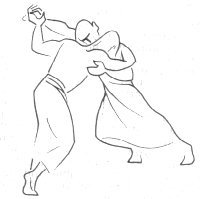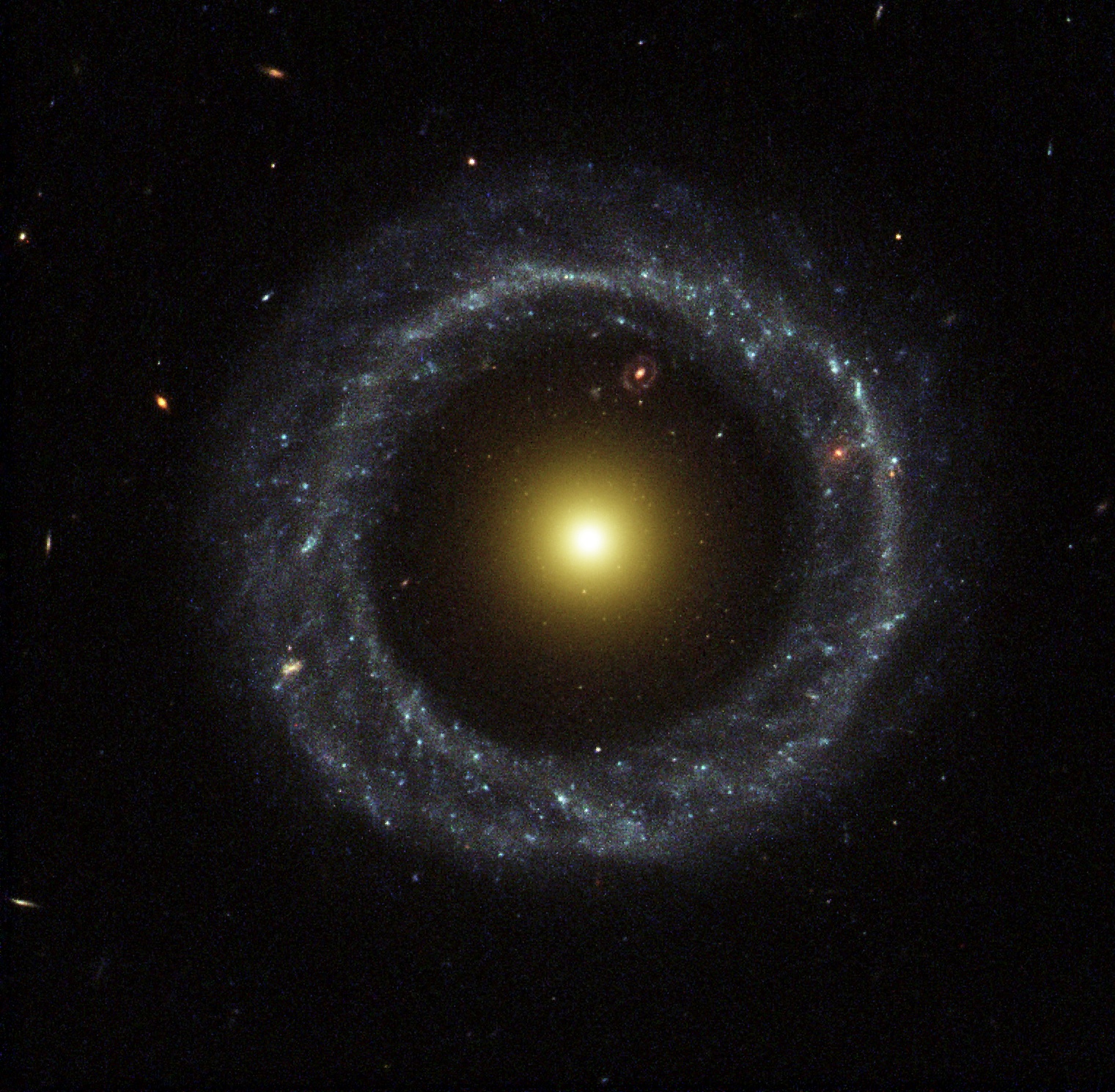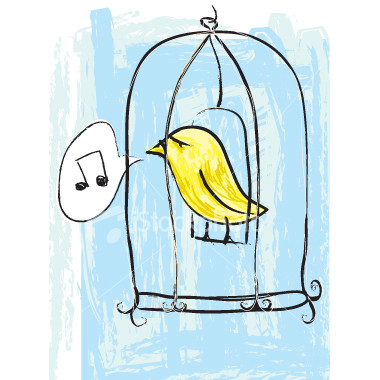

|
A brief history of social economy Our needs are simple: food, shelter, security, comfort, leisure to create. But historically, there has never been enough to go around. The basics of life were available only to those who could command the labor of others on their behalf. There has always been a struggle to determine who shall toil and who shall live in leisure. Comfort was linked inextricably to oppression. Because we were either slaves or masters, we have a long habit of distrust, and have learned to regard each other as competitors in a struggle for power and pursuit of scarce resources. In the 21st Century, mankind for the first time has the potential for sufficiency. Machines substitute for labor. Technology has given us the horn of plenty, and no one’s comfort need depend any longer on the suffering of another. Habits die slowly. The mental orientation toward scarcity is deeply ingrained, and the hunger for power will not die in a single generation. But reality will free us in time from resentments and struggle. As the basis for our fears dies away, so, too, will the fears, and with them our constrained habits of thought. We shall be freed to regard one another as sacred souls all, reflections of ourselves and companions on our voyage into mystery. — Josh Mitteldorf |
1 March 2009
|
||
|
Bertrand Russell was an aristocrat who used his status to challenge the establishment. He was a humanist deeply committed to peace, with values derived with autonomy, and an ever-present sense of humor. Born in 1872, Russell lived long enough to protest the Vietnam war, and to be dragged into jail as a 95-year-old practicing nonviolence. Watch John Freeman interview Russell in a 1959 BBC special, now on Youtube |
2 March 2009
|
||
|
Tomorrow’s Child What is hope? It is the pre-sentiment that imagination is more real and reality is
less real than it looks. It is the hunch that the overwhelming
brutality of facts that oppress and repress us is not the last word.
It is the suspicion that reality is more complex than the realists want
us to believe. But the two — suffering and hope — must live from each other. Suffering without hope produces resentment and despair. But hope without suffering creates illusions, naïveté and drunkenness. So let us plant dates even though we who plant them will never eat them. We must live by the love of what we will never see. That is the secret discipline. It is the refusal to let our creative act be dissolved away by our need for immediate sense experience and it is a struggled commitment to the future of our grandchildren. Such disciplined hope is what has given prophets, revolutionaries and saints the courage to die for the future they envisage. They make their own bodies the seed of their highest hope. — Rubin Alves |
3 March 2009 |
||
|
A Scientist goes to an Ashram for a Personal Retreat How does all of this validate the views of someone who does not believe in a personal God, but who has a strong sense of being one with the universe and possibly losing a sense of self in the experience. The transcendent and the numinous can be accessible to the most materialistic of scientists, without positing the supernatural. At the same time, there is no reason to mistrust the same experiences in believers simply because they posit a supernatural source. The question is not, “Does God exist?” It’s irrelevant. The question is whether believers and nonbelievers can rejoice in the same experiences and not denigrate the other’s explanation as to the origins of very powerful human responses. |
4 March 2009
|
||
|
My Father
|
5 March 2009
|
||
|
Cold storage for genes There is mounting evidence that genomes are like wardrobes, containing not just the currently useful genes, but also ancient genes that haven’t been used in millions of years, but also haven’t been lost, just in case environments change and they become useful again to some distant descendant. Natural selection is supposed to be blind. Natural selection has no foresight. How did genomes learn to stash away ideas that might be useful, say, another million years from now? This is part of a far richer reality than evolutionary scientists have imagined, and if we have courage and an open-minded posture to embrace it, then we will be rewarded with a deeper appreciation of nature’s wonders. |
6 March 2009
|
||
|
Sing God a simple song Sing God a simple song, lauda, laude In 1971, for the opening of the Kennedy Center in DC, Bernstein took the traditional Catholic mass and embedded in a theater piece that explores the contradictions and ambiguities in the role of the church in a rapidly-changing, pluralistic America. The believer confronts the counterculture, the warriors and the war protestors, the scientists and the businessmen, and is challenged the find the core of his faith. In the end, the value that emerges is community. Orchestration includes marching band, bongo drums, electric guitars, organs, electronic keyboards, childrens’ voices, in addition to 20 solo voices, 2 choirs and an orchestra. Listen to Simple
Song from the theatrical
Mass by Leonard Bernstein ‘Half the people are stoned and the other half are
waiting for the next election. |
7 March 2009
|
||
|
A brief history of political civilization Leaders dehumanize the other tribe, sow hatred and misunderstanding
in order to make their subjects feel threatened and afraid. Thus
they consolidate their power. They propagandize to overcome resistance
to conflict, and drag their constituents into wars for their own
aggrandizement. Leaders in competing tribes mirror this strategy, and
the stage is set for tragedy. – Josh Mitteldorf |
8 March 2009
|
||
|
Der Schauende — The man watching
|
9 March 2009
|
||
|
Pharmaceutical help for the insufferably cheery Are you insufferably ebullient? Do you beam if a stranger so much as looks your way? Do you see the silver lining in even awful situations? Well, there’s help for you! The FDA has recently approved a new depressant called Despondex. Although alternative natural treatments exist (TV, high-fructose corn syrup, sedentary lifestyles), these therapies put the onus on the victim. Medical help is available now that de-stigmatizes joie de vivre. Yes, even you can be socially appropriate. |
10 March 2009 |
||
|
Auto graveyard As a dominant form of transportation, the automobile is dead...The financial crisis now enveloping the world is grounded in the transition from the automobile (and the fossils that fuel it) to a brave renewable world of reborn mass transit and green power... Franklin Roosevelt took GM over in 1943-5 to make the hardware to beat the Nazis. Barack Obama should now do the same to beat climate chaos...Hybrids are too little, too late, with problems of their own. Solar-powered electric cars will help phase out the gas guzzlers. But in the long run, the automobile itself needs to be dismantled and re-cycled, not retooled or rebuilt... We need to dig up roads, not build more. We need rails and coaches, bio-diesel buses and self-propelled trolleys, Solartopian super-trains and in-town people movers, not to mention windmills, solar panels, wave generators and geothermal piping... Our true challenge is to envision, engineer and build a Solartopian transportation system that moves people and things cleanly around a crowded planet with diminishing resources and no margin for ecological error. — Harvey Wasserman, writing for FreePress.org |
11 March 2009
|
||
|
‘Full understanding can come to you — Huang Po (c 800 AD) |
12 March 2009
|
||
|
Peace ‘The time has come. We know how to build peace; we just have to do it... ‘I write these words now to all of you who know this and in one way
or another are doing it already, especially if you are in despair or
think you are doing it alone. Human evolution is the story not of war
but of cooperation, and the creation of a
National Peace Academy,
possibly in conjunction with the establishment of a cabinet-level
Department of Peace (H.R. 808), would push human cooperation to a
new level, because it would require the convergence of so many
activists, educators, artists, scientists and philosophers. — Reversing
the Cycle of Violence The day will comewhen, after harnessing space,
the winds, the tides, gravitation, we shall harness for God the energies
of love. And, on that day, for the second time in the history of the
world, man will have discovered fire. |
13 March 2009
|
||
|
Stop trying to change In order to change we must quit trying to change and simply be who and where we are. The Gestalt Therapy notion is that awareness and contact bring natural and spontaneous change. Only by being who we are can we begin to grow into something else. Self-discipline can be as counter-productive as externally-imposed coercion. ‘By rejecting the role of change agent, we make meaningful and orderly change possible.’ — Arnold Bessler Transition does not require that you reject or deny the importance of your old life, just that you let go of it. The process begins with surrender (of avoidances), awareness (of who and where we really are) and release (of the old ways of being). |
14 March 2009
|
||
|
Stop trying to create change Yesterday’s DI proclaimed the sufficiency of self-acceptance as a basis for personal transformation: Know and accept yourself thoroughly and change will take care of itself. I speculate that the same is true of social change: That spreading truth is both necessary and sufficient for the transformation of society. It is said that ‘Truth is the first casualty of war’. The converse is that exposing lies can create peace. When we understand the truth about foreign peoples and ways of life, they are no longer threatening to us, and we cannot sustain hatred for them. Every despot has had his propaganda machine, saturating the channels of communication with myths and distortions. He knows that his hold on power hangs on the success of his lies. The Quakers practice ‘bearing witness’ to injustice. The only thing Gandhi was ruthless about (in his personal discipline and in his political stance) was the truth. Today’s revolutionaries and utopians may forgo the strategy debates: all that we need do is to study what is actually happening in our world, and to get the word out. — Josh Mitteldorf |
15 March 2009
|
||
|
Saying ‘no’ to numbness We are born equipped to experience a complex array of diverse emotions. Many of us, however, are uncomfortable confronting our most powerful emotions. We may shy away from delight as well as despair, and deny life’s colors by retreating into a world of monotone grey. We may numb ourselves to what we are truly feeling. It’s easier to suppress our emotions than to deal with them, so we may momentarily turn to diversions such as alcohol, food, sugar, shopping or television. Work, too, can be misused as an anesthetic. We may
even numb our hearts. While it’s normal to temporarily seek distractions
as a means of coping with intense emotions, numbing yourself habitually
can block the action of discomfort as an impetus to learning and growth. When you are numb, there is no pain or
powerlessness, but there can also be no joy or healing. — Madisyn Taylor, The Daily Om |
16 March 2009
|
||
|
‘In the Confucian tradition it is said that the mark of a golden era is that children are the most important members of the society and teaching is the most revered profession.’ — Peter M Senge, Society for Organizational Learning |
17 March 2009
|
||
|
40% more — FREE! A new, improved, protein-rich pea is set to launch a new Green
Revolution. This new variety of pigeonpea, called Pushkal, is the first
commercially available hybrid legume in the world. |
18 March 2009
|
||
|
Solomon Asch and the Power of Dissent Solomon Asch, with experiments originally carried out in the
1950s and well-replicated since, highlighted a phenomenon now known as
‘conformity’. In the classic experiment, a subject sees a puzzle like
the one in the nearby diagram: Which of the lines A, B, and C is the
same size as the line X? Take a moment to determine your own answer... — Eliezer Yudkowsky, blogging on the Overcoming Bias web page |
19 March 2009
|
||
|
אַהֲבַת עוֹלָם We are loved by an unending love. We are embraced by arms that find us We are supported by hands that uplift us Embraced, touched, soothed, and counseled, — Rami Shapiro, inspired by Ahavat Olam |
20 March 2009
|
||
|
Change should breed change NEW doth the sun appear, “I study myself more than any other subject; it is my metaphysic, and my physic.” |
21 March 2009
|
||
|
Ten Commandments Thou art enjoined to enjoyment, So cherish thy good cheer, — Josh Mitteldorf |
22 March 2009 |
||
|
Higgs Boson As physics grew more ambitious and more complex during the 20th century, it also grew harder to test. Increasingly, great mathematical abstractions were pieced together with only a few points where they were able to touch experiment. Experiments to test the theories came to require billion-dollar particle accelerators. The particle physics community has been fairly complacent for 30 years now as the ‘Standard Model’ has been found to predict everything it can predict with fair accuracy. But a piece of the program has been AWOL all these years: Why do some particles have mass, while others don’t? The Standard Model’s answer involves a particle which is supposed to be ubiquitous, but entangled and hard to pull apart from ordinary matter. To do so requires huge amounts of energy, more energy than is available in any accelerator — until last year when CERN’s Large Hadron Collider opened. Now the LHC is producing data and the Higgs Boson has yet to show its face. I’m rooting for it not to exist. We need some impetus for new and stranger theories, and we need to renew our lease on awe and mystery.
About.com article by Andrew Zimmerman Jones |
23 March 2009
|
||
|
Was there life before cyberspace? Inside, outside, there’s a conversation going on today that wasn’t happening at all ten years ago and hasn’t been very much in evidence since the Industrial Revolution began. Now, spanning the planet via Internet and World Wide Web, this conversation is so vast, so multifaceted, that trying to figure what it’s about is futile. It’s about a billion years of pent-up hopes and fears and dreams coded in serpentine double helixes, the collective flashback deja vu of our strange perplexing species. Something ancient, elemental, sacred, something very very funny that’s broken loose in the pipes and wires of the twenty-first century. There are millions of threads in this conversation, but at the beginning and end of each one is a human being. That this world is digital or electronic is not the point. What matters most is that it exists in narrative space. The story has come unbound. The world of commerce became precipitously permeable while it wasn’t looking and sprang a leak from a quarter least expected. The dangers of democracy pale before the danger of uncontained life. Life with the wraps off. Life run wild. — from The Cluetrain
Manifesto |
24 March 2009
|
||
|
Twelve Virtues of Rationality The first virtue is curiosity. A burning itch to know is higher than a solemn vow to pursue truth... The third virtue is lightness. Let the winds of evidence blow you about as though you are a leaf, with no direction of your own. Beware lest you fight a rearguard retreat against the evidence, grudgingly conceding each foot of ground only when forced, feeling cheated. Surrender to the truth as quickly as you can. Be faithless to your cause and betray it to a stronger enemy... The fourth virtue is evenness. Beware lest you place huge burdens of proof only on propositions you dislike, and then defend yourself by saying: it is good to be skeptical. The fifth virtue is argument. Those who smile wisely and say: “I will not argue” remove themselves from help, and withdraw from the communal effort. In argument strive for exact honesty, for the sake of others and also yourself:... The eighth virtue is humility. To be humble is to take specific actions in anticipation of your own errors. To confess your fallibility and then do nothing about it is not humble; it is boasting of your weakness... These then are twelve virtues of rationality: 1-Curiosity, 2-Relinquishment, 3-Lightness, 4-Evenness, 5-Argument, 6-Empiricism, 7-Simplicity, 8-Humility, 9-Perfectionism, 10-Precision, 11-Scholarship, 12-the Void. — read the entire list, by Eliezer Yudkowsky Note 1: This means me. Smug as I am in my world view and my basic beliefs, some of my most deeply-held convictions are just wrong. Learning which ones is probably the most important thing I can do. Note 2: It’s fine to say that in the end each of us is our own arbiter of truth, but we simply don’t have time to explore every challenge to our beliefs. Most of our knowledge comes not from direct experience but second-hand, from others. So, in practice, we decide which challenges to our beliefs we will examine by looking to their source: how much do we trust the person or institution that is offering this disparate information? It gets more complicated: most of us surround ourselves with people who share our basic beliefs. That’s a good thing for working relationships, and it’s a comfortable way to live. But if we are going to subject our fundamental beliefs to challenge, it is essential that we seek out people who are credible advocates for very different ways of thinking. How can someone be credible when he is saying such strange things? How can we even judge whether he is credible as we suspend disbelief over his pronouncements? — JJM |
25 March 2009
|
||
|
There is only one story. You already know the plot. Live it now. Eternity isn’t a long time. Eternity has nothing to do with time. Eternity is that dimension of here and now which thinking and time cuts out. This is it. And if you don’t get it here, you won’t get it anywhere. The experience of eternity right here and now is the function of life. — Joseph Campbell, born this day in 1904 |
26 March 2009
|
||
|
No choice in the matter (of full choice) Due to circumstances L’homme est condamné à être libre.— Jean-Paul Sartre— Man is condemned to be free. |
27 March 2009
|
||
|
The poem that took the place of a mountain. There it was, word for word, — Wallace Stevens |
28 March 2009
|
||
|
Belief and Action ‘God grant me serenity to accept the things I cannot change;
courage to change the things I can; and wisdom to know the difference.’ The counterpart in the realm of faith and reason might be stated: ‘Let me seek always for understanding, never tiring of the quest for
rational underpinnings in the workings of the universe; and all that I
cannot understand, may I regard with divine wonder, even as I guard the
hope that this, too, may someday be tamed by reason.’ |
29 March 2009
|
||
|
Recipe for musical appeal A simple, engaging melody on top, with a rich complexity of counter-rhythms and unexpected harmony below the surface. Listen to the Andante from Dvorak’s Serenade for Winds |
30 March 2009
|
||
|
History of human rights: a one-way street ‘Once social change begins, it cannot be reversed. You cannot uneducate the person who has learned to read. You cannot humiliate the person who feels pride. You cannot oppress the people who are not afraid anymore. We have seen the future, and the future is ours.’ — Cesar Chavez, born this day in 1927 |
31 March 2009
|




















 painting of Kirsten Koko
painting of Kirsten Koko






